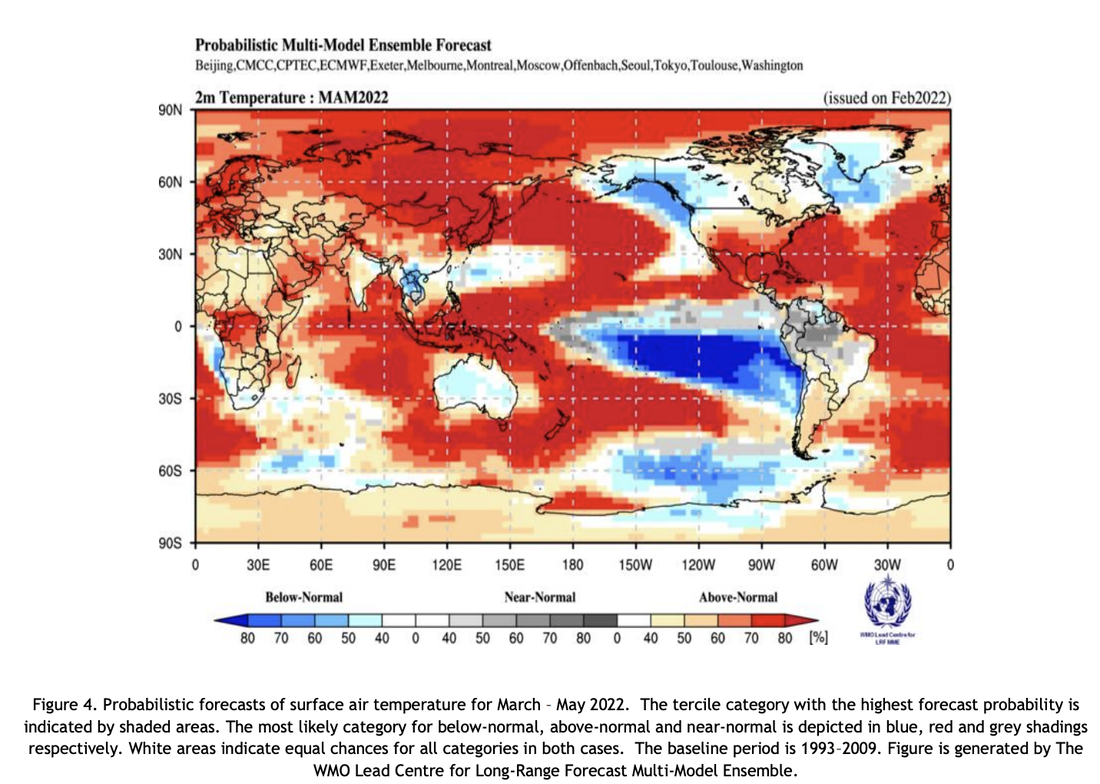About climate – Exceptional El Nina will continue to affect agriculture
- 2022.07.06
Do you know about La Nina and El Nino climate events? Right now it has been since 2020 that we have been in La Nina climate event. Multi-year La Nina is very rare and we need to prepare for it to exceptionally continue next year as well.
Without getting into the details on why this happens and how it is predicted (Pacific ocean surface is colder than usual) let me explain the details of this. In the big picture it is causing dryer summers and winters more prone to cold snaps. Also more droughts in the Northern atmosphere and bigger floods in the Southern atmosphere (usually in the beginning of the year between December to February) (remember the floods in Mozambique in the last few years).
From the reports of the people collaborating with us, from the Tokyo8 testers in Liberia there has been an unusual dry spell which affected the results of the cultivating experiment. Also in Lesotho, they were not able to start the experiment because of the abnormally long rainy season. There were also similar reports in Indonesia concerning the rain.
This situation is very likely to repeat next year.
So what can we expect for next year?

Source: https://public.wmo.int/en/media/news/el-ni%C3%B1o-la-ni%C3%B1a-update-february-2022
For Japan, similar as this year we will likely experience a short Tsuyu (rainy season) as well as weaker typhoons than in El Nino periods. But droughts will intensify in South-West Japan (peaking in August-October) and for North-East Japan too (June-August). Winter (especially in February-March) will be more prone to cold snaps that greatly affect the production of tree fruits such as apples and pears.
For Africa, we can expect floods similar to last year and the year before for the East coast this fall and next year as well. Those floods will be followed by unusual dry spells and severe droughts similar to what happened in Ethiopia, Kenya and Somalia this year.
This year and next year will be difficult for agriculture since food prices have been on the rise since 2020 and with the war in Ukraine and the shortages in chemical fertilizers it will only get worse. This is why we need to find alternatives to our way of cultivating.
Sources:
https://www.nature.com/articles/d41586-022-01668-1
https://www.jstage.jst.go.jp/article/jmsj/98/6/98_2020-064/_html/-char/en
https://www.hindawi.com/journals/amete/2013/632470/
https://www.climatelinks.org/blog/la-nina-and-climate-change-cause-exceptional-drought-east-africa
https://www.downtoearth.org.in/interviews/africa/east-africa-drought-climate-change-is-making-la-ni-a-impact-severe–83283
